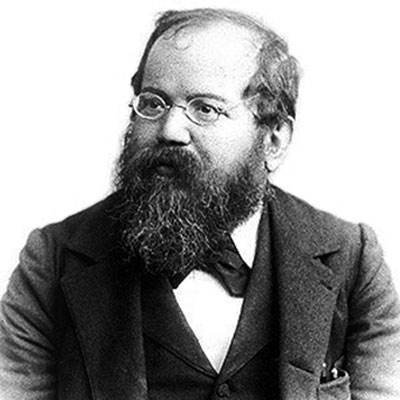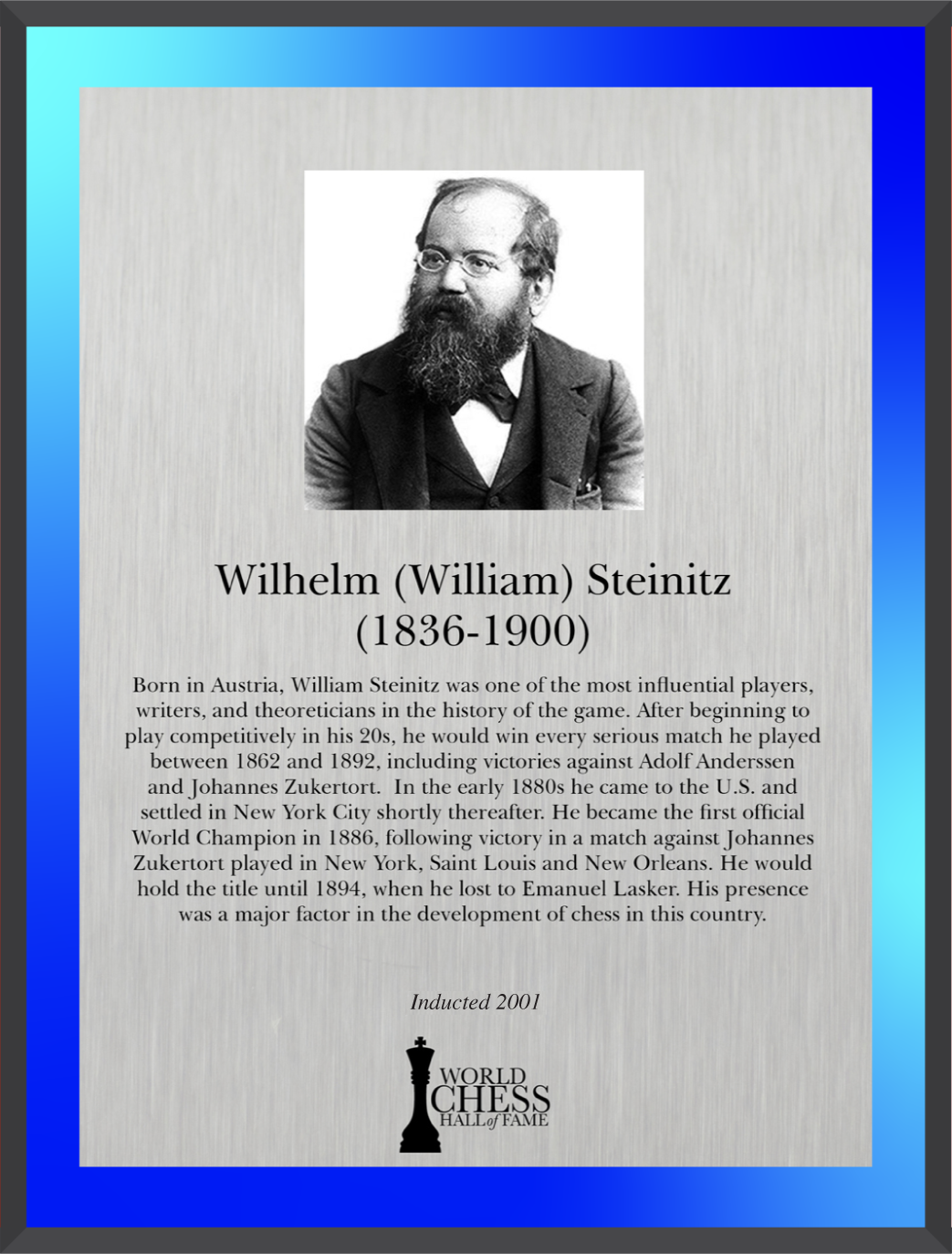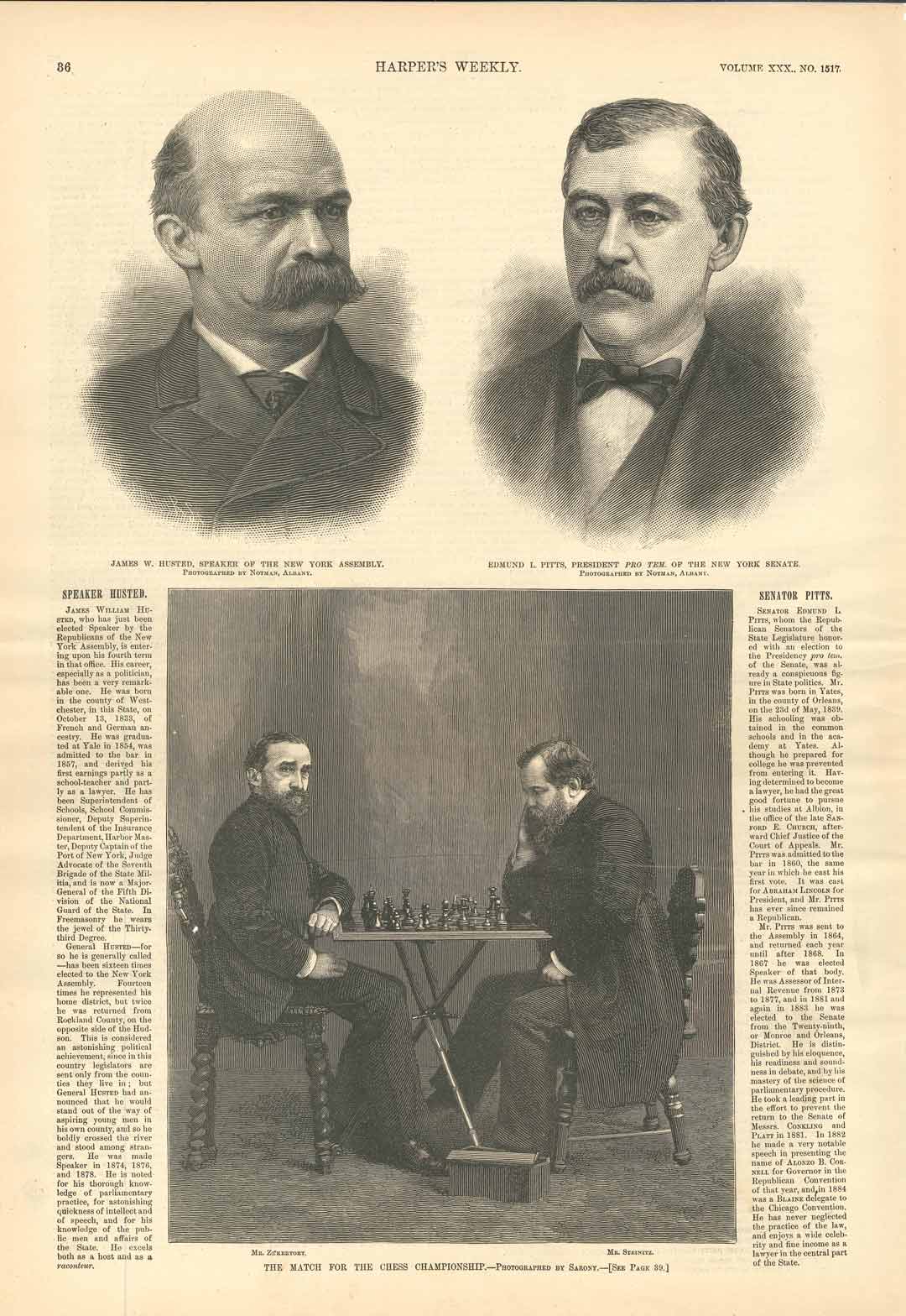
(1836 – 1900)
U.S. Chess
Hall of Fame
Inducted 1987
World Chess
Hall of Fame
Inducted 2001
Born in Austria, William Steinitz was one of the most influential players, writers, and theoreticians in the history of the game. After beginning to play competitively in his 20s, he would win every serious match he played between 1862 and 1892, including victories against Adolf Anderssen and Johannes Zukertort. In the early 1880s he came to the U.S. and settled in New York City shortly thereafter. He became the first official World Champion in 1886, following victory in a match against Johannes Zukertort played in New York, Saint Louis and New Orleans. He would hold the title until 1894, when he lost to Emanuel Lasker. His presence was a major factor in the development of chess in this country.
Steinitz’s contributions to chess theory were just as valuable to the game as his playing talent. Giving up an early reliance on attacking at all costs, he explained in a logical and specific way why methods of sound development and strategic planning were the keys to correct play. The theories of Steinitz, along with those of his contemporary Paul Morphy, are widely regarded as having laid the foundation for the beginning of modern chess. Indeed, his early observations and theories are still quoted as the foundations and basic principles of chess mastery.


Receive news about our collection, exhibitions, events, and more.
Background Image: Austin Fuller